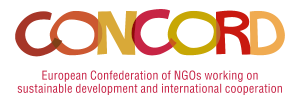
Tanya Cox
Director at CONCORD
CONCORD recently partnered with the European Parliament in the organisation of their 3-day Beyond Growth conference. The event apparently drew 2000 people to join physically, while 2000 more were online. That is an enormous success for a topic which, when CONCORD started working on it in the early 2000s, was far from ‘accepted’, to put it mildly. Maybe an even greater sign of success was the hastily penned, typically cynical– but very unconvincing – article in The Economist, which tried to denigrate the points made at the conference but ultimately just showed that even they are concerned we are being listened to!
The conference garnered the support of the President of the Parliament (who nonetheless misunderstood (?) the point of the conference and her several references to growth brought rye laughter from the audience) and of the President of the European Commission (who seemed to equate ‘beyond growth’ with decarbonisation, even if other metrics were acknowledged).
For the most part, the interventions had moved past proving the point that GDP is an absolutely inadequate indicator. There also seemed to be general acceptance that the pursuit of growth – as measured by GDP – over the past 70 years has caused inordinate, even irreparable, harm to the environment and to biodiversity and soaring inequalities.
So there was a greater emphasis on demonstrating that the whole economic model is highly flawed. Whereas at the end of World War II, focusing on output was necessary – people needed ‘stuff’ – now an increasing number of people are calling for politicians to recognise that we have plenty of ‘stuff’ in the Global North and the very fact of chasing this one (increasingly elusive) figure is leading us massively astray. GDP doesn’t distinguish between €1000 of healthcare and €1000 of teargas, as Jason Hickel so aptly put it during the conference.
As I listened to the various speakers, the scale of the mental leap needed by policy-makers and people in positions of power became all the more clear. Even those EU leaders who recognise the need to move beyond GDP, to take into consideration ‘other metrics’, have not fully grasped that we are talking about a different kind of economy. An economy which is regenerative, redistributive and resilient. One that works for people and planet, not the other way around. EU leaders are still worried about ‘remaining competitive’, for example. Where does competition fit in a world where caring, sharing and well-being dominate? The competition should rather be about how to have the least impact on planetary boundaries and how best to reward workers.
Maroš Šefočovič, Commission Vice-President in charge of Inter-Institutional Relations, suggested that GDP might still be useful for measuring output, while immediately acknowledging that it doesn’t say anything about the social and environmental cost of producing that output. Quite right! So, if we were to take that into consideration and deduct it from the GDP measure, to get the true value of production, that figure might even be negative. What would that say about GDP?
Jason Hickel was quite clear: GDP is a redundant notion – everywhere! That doesn’t mean progress isn’t necessary and it doesn’t mean that production of goods and services isn’t necessary, especially in certain parts of the world. But it does mean that production needs to be reoriented away from individual benefit (eg. SUVs) and towards common benefit (eg. public transport). It also means that the role of profit – and who profits – needs to be reviewed, just as what is valued must be revisited. Why is it, for example, that care work is so seriously undervalued?
Going back to President von der Leyen and others who believe that with enough innovation, we’ll be able to get out of the mess we’re in. Of course, innovation is crucial, but it takes too long and is far from systemic. Relying on innovation and technological advances is like sticking one’s head in the sand and refusing to realise that more profound change is needed. The capitalist system itself is creating the harm. So ‘beyond growth’ equates to ‘beyond capitalism’, since capitalism is inherently exploitative and competitive.

Scholars at the conference offered a huge amount of evidence that fiscal and monetary policies are fundamentally flawed – but since they were invented by people, they can also be reinvented and reimagined by people.
CONCORD organised a very lively debate about the links of the growth model with the Global South. One message rang crystal clear: capitalism = colonialism. It is ironic that in this day and age of hyper-vigilance and hyper-sensitivity to any -ism (ageism, racism, sizeism, sexism…), we are nonetheless largely ignorant of our ongoing colonialism. And even if we are aware of it, it is very hard to get around it. The economy of the Global North (or the minority world, as Lebohang Pheko, an activist and academic from South Africa, called it) has been built on the back of the Global South (the majority world). And the economy in much of the majority world – instead of being geared to produce housing, food, healthcare, public transport for their own people – is actually designed so as to service the minority world.
That means we have a huge social and ecological debt to the Global South. And that when we go ‘post-growth’ we must also go ‘post-colonialism’. We need to re-configure our economies so that the ‘balance of trade’ is fair, and real prices are paid for goods, services and natural resources – prices which reflect the real environmental and social costs. We must bring to an end the days of companies outsourcing production because they can get away with paying less for labour in the majority world, because they can buy up valuable land at rock bottom prices or because they don’t have to pay tax in those countries.
Back in Europe, there is a huge onus on us to call for change. To make it clear that we want leaders who understand the need for radical, transformative change and who will deliver that change. Maybe the European elections next year are an opportunity? It is our responsibility to vote for leaders who have the courage to make historic, life-changing decisions. Decisions to change the economic model and to put people and planet first, not profit. It’s time to put the wind up The Economist!
